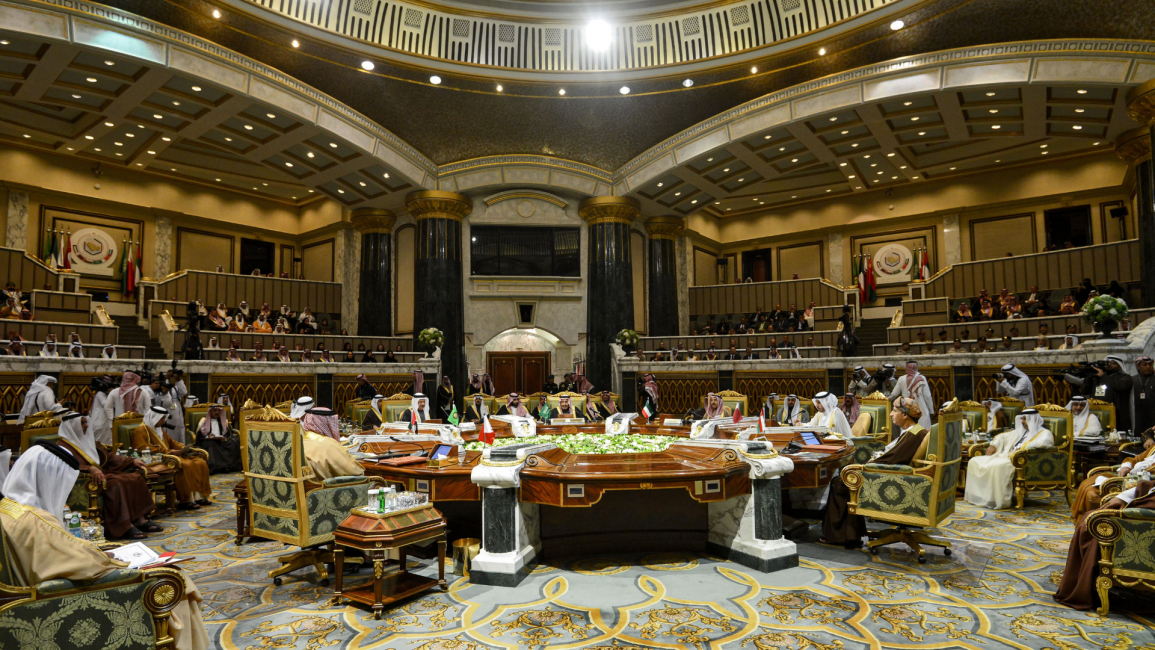Gulf reconciliation to take place at annual GCC summit later this month, Kuwaiti diplomat claims
"The Gulf reconciliation will take place at the meeting of the Gulf summit, which was scheduled to be held in Bahrain this month," a senior Kuwaiti diplomatic source told Al-Rai,
adding that "this chapter of dispute will be closed."
The source was not identified in the report and no further information was given.
The 41st Summit of the Supreme Council of the GCC Leaders was scheduled to be held in Manama this month, however due to the latest developments in the region, analysts believe it is likely to be hosted in Kuwait.
The comments were made after Saudi Foreign Minister Faisal bin Farhan said that the UAE, Bahrain, and Egypt are all "on board" regarding the resolution of a three-year diplomatic crisis with Qatar.
"The only way towards reaching an agreement that is sustainable is through such consultation," he said on a sidelines of a security conference in Manama.
Until recently the three-year Gulf dispute - pitting Saudi Arabia, the UAE, Bahrain, and Egypt against Qatar - had appeared intractable, but Prince Faisal said that a breakthrough was imminent.
Twitter Post
|
"We are in full coordination with our partners in this process and the prospects that we see are very positive towards a final agreement," he told said, adding that "the eventual resolution will involve all parties concerned".
"What we envision is a resolution that covers all aspects and is satisfactory to all parties involved," he said when asked whether the dispute was headed for a full settlement.
It would happen "soon", he said.
Saudi Arabia led its allies the United Arab Emirates, Bahrain and Egypt to cut ties with Qatar in June 2017, saying it was too close to Iran and funding radical Islamist movements - charges Doha has staunchly denied.
They subsequently forced out Qataris residing in their countries, closed their airspace to Qatari aircraft and sealed their borders and ports, separating mixed-nationality families.
Ineffective blockade
After breaking off ties, the four countries issued a list of 13 demands for Qatar, including shutting down media outlets Al Jazeera and The New Arab and downgrading relations with Turkey.
But the blockade, which was designed to choke Qatar and force it to align with Saudi interests, has only made Doha more self-sufficient and pushed it closer to Iran and Turkey, observers say. It has also hurt Saudi strategic interests.
Asked whether Saudi Arabia would drop or slim down its list of demands, Prince Faisal said: "The best I can say right now, not to prejudice the ongoing discussions, is that the resolution will be satisfactory to all."
On Friday there was a chorus of optimistic comments from Qatar, Oman and Kuwait, who all said progress had been made towards ending the crisis.
Kuwait, which is leading mediation efforts, said all sides had expressed keenness for a "final agreement" during recent "fruitful discussions", which have included the United States.
On Saturday, Kuwaiti emir Nayef Al-Ahmad Al-Sabah sent letters to both Qatari Emir Tamim bin Hamad Al-Thani and Saudi King Salman bin Abdul Aziz thanking them both for their efforts to resolve the crisis.
However, US Secretary of State Mike Pompeo said he hoped Washington could broker a resolution but cautioned he was "out of the prediction business in terms of timing".
President Donald Trump's son-in-law and senior adviser, Jared Kushner, is reported to have raised the Gulf crisis and pushed for progress towards ending the spat during a recent visit to Saudi and Qatar.
Read more: Why is Qatar under blockade by Saudi Arabia and its allies?
Saudi Arabia's closure of its airspace has forced Qatar Airways to fly over Iran, Riyadh's arch-rival and long-time adversary of Washington, reportedly paying Tehran $100 million annually to do so.
US national security adviser Robert O'Brien said in November that allowing Qatari planes to fly over Saudi Arabia via an "air bridge" was a priority for the outgoing Trump administration.
Qatar has repeatedly said it is open to talks without preconditions.
Follow us on Facebook, Twitter and Instagram to stay connected



